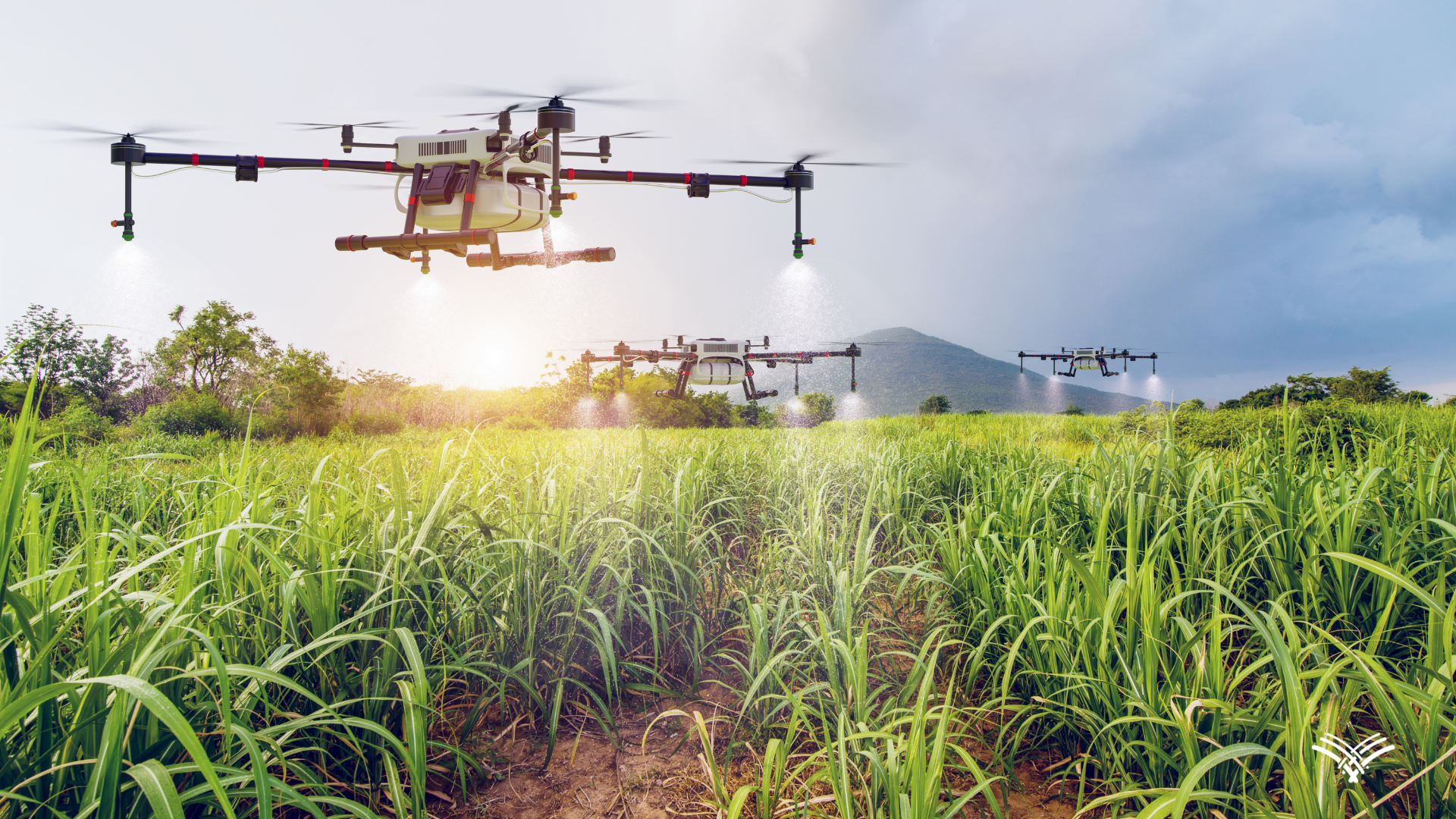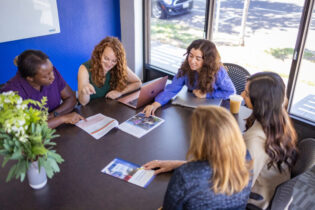Preparing Tomorrow’s AgTech Workforce

As technology advances and industries undergo transformations, our region must equip job seekers with the skills and knowledge needed to thrive in the workforce of tomorrow. On April 26th, Valley Vision hosted an advisory on AgTech careers, exploring the technical skills needed to meet the evolving needs of the agriculture and manufacturing industries. The event featured labor market information and an employer panel including Jose Alvarez of Del Monte Foods, Greg Ahart of Superior Farms, Trudi Hughes of the California League of Food Producers, Diane Robinson of TOMRA Foods, and Amy Vedmore of Blue Diamond Growers. Key takeaways from the event were the importance of using data to inform promising career pathways in the field, the need to adapt to technological advancements, and collaboration as key to accomplishing both.
The agricultural industry in the Greater Sacramento region offers numerous opportunities, with over 15,500 available jobs and an average annual wage of $60,763. However, the sector has faced reductions in some positions, including an 8% decline in overall employment from 2017 to 2022 and a projected continued 1% decrease by 2027. Biological technicians offer an opportunity with the largest increase in job postings, indicating a growing demand for roles that combine life sciences and agriculture. Additionally, positions supporting IT or technical functions are projected to grow.
Trudi Hughes from the California League of Food Producers led the panel discussion on the importance of adapting to technological advancements, particularly within the food processing industry. She emphasized that in addition to AI and automation becoming increasingly prevalent, there is also a critical need for skilled workers who can install, maintain, and repair equipment, as well as ensure compliance with complex regulatory environments. Integrating modules on AI-driven agricultural technologies, such as electronic sorting and grading equipment, into the curriculum can provide students with a comprehensive understanding of their applications. Panelists explained that these technologies require human oversight to ensure accurate machine learning, making it essential for educators to teach students how to manage and maintain them.
The industry panel also emphasized the need for customized courses to address the specialized skills evolving in the industry. They seek candidates with expertise in electrical, mechanical, welding, refrigeration, and boiler operation. Recommendations were made for training programs to cover compliance, regulatory requirements, automation control, instrumentation, in addition to emerging technologies like robotics, AI, and machine learning. Furthermore, they indicated specialized skills in electronics, software engineering, and cybersecurity are also desired. Diane Robinson recommended a dual focus on technical skills and “behavioral competencies,” such as adaptability, acquired through team-based learning, to prepare for evolving job requirements. Panelists agreed, for careers in agriculture and manufacturing, individuals need to not only gain technical skills but also develop essential soft skills such as critical thinking, adaptability, and teamwork.
Collaboration was a focal point during the advisory, with panelists emphasizing the importance of partnerships between educational institutions and industry. Jose Alvarez from Del Monte Foods emphasized the importance of continuing conversations between industry and training partners on a regular basis, not just once a year. He felt strongly it is important to define skills needed as an industry cohort to help training partners clearly understand in order to make progress in closing the skills gap. These types of collaboration would not only address the current demands but could also foster a culture of continuous learning with local employers that have first-hand knowledge of the industry.
The advisory concluded with breakout rooms to encourage collaboration between employers, education, and workforce training partners. By developing and maintaining strong partnerships between educational institutions and industry, there is a unique opportunity to shape a talent pipeline that not only meets today’s workforce needs but also anticipates and adapts to future challenges and opportunities.
This advisory was funded by Los Rios Community College District through Strong Workforce Program funds and the Capitol Region Workforce Boards through Regional Planning Implementation funds.



